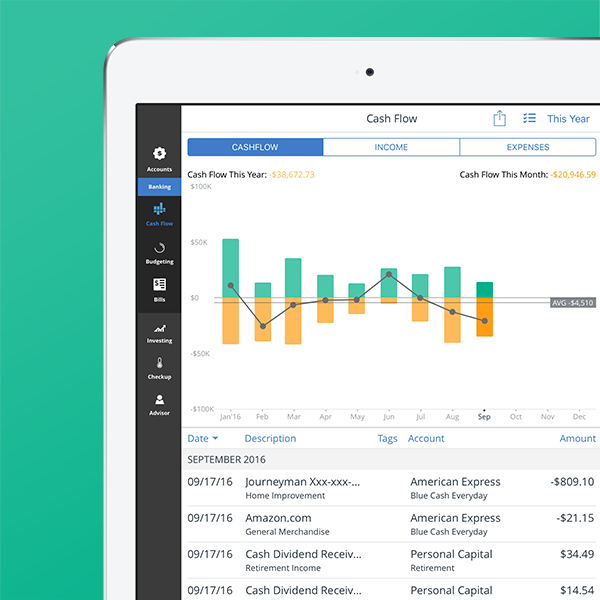Compound returns or compound interest. We’ve all heard it used at one time or another, but what does it really mean and how can we use it to our advantage?
What is compound interest?
Essentially this principle deals with the time value of money. Essentially it’s why having a $100 to invest today is worth more than having $100 a year from now, since you would have missed out on a year’s worth of interest/investment return. If you earned 10% in a year you would have $110, you’re initial $100 plus ten dollars in interest. This is where the power of compound interest comes in. In year two, the interest you earn increases since you’re earning on the total $110, instead of your initial $100. If you get the same 10% return in year two, you will have $121, instead of $120 if you only earned 10% on the $100. While it doesn’t seem like a lot, that’s 1% more than if you would have just received a 10% return on the initial $100 each year for two years. This is an example of compounding, which is when what you earn gets added to your initial balance and you then earn interest on that previous interest as well. If your savings account doesn’t offer compound interest than you would earn interest only on your principal. This process then continues year after year and the benefits of earning a compound return continues to grow. The idea also applies to investing in the stock market as well. You only need to swap the term “interest” for “investment returns”.
Learn From My Past Mistakes. Get Your Copy of the 9 Most Common Investing Mistakes.
Get My Copy
Learn From My Past Mistakes. Get Your Copy of the 9 Most Common Investing Mistakes.
Get My CopyWho uses compound interest?
Legendary investor Warren Buffett has built his entire fortune on the idea. He likes to think of this as a snowball. If you roll a small snowball down a hill, it builds as more snow sticks to it, turning into a snow boulder over time. The longer the hill (or the more time you have to invest) the bigger the snowball gets.
What impact does compound interest have on me?
Understanding the effects of compounding is crucial when it comes to managing your finances. As I mentioned earlier, having a savings account that offers compound interest is better than having one that doesn’t. Also, using the effects of compounding to your advantage can play an important role in your investing and retirement strategy. In order to better illustrates this let’s delve into some examples.
A quick note before I delve into some examples. All of my examples assume a consistent compounding return each year. I am assuming that if you earn 5% in year one, that in year two your entire balance (initial investment plus gains from year one plus any additional contributions) will earn 5% and so on. While in reality this may not always be the case, it provides for an easier way to explain the effects of compounding.
For an example on the power of compounding, check out the chart below on the impact of saving $1,000 per year. Let’s say you start saving when you are 35. After 20 years, when you are 55, of earning 5%, your $20,000 in savings is worth a little over $33,000. Not bad. But if you started when you were 25, for an additional $10,000, your total balance would be worth almost $66,500. So those ten years cost you $23,373 in additional returns. This is why time is so important in saving and investing. The earlier you start investing, the more time you have to compound your returns, which makes your money work for you. This impact grows as the rate of return goes up, as you can see by the difference 10 years makes when you earn 10% return.
Account balance at 55 based on $1,000 savings per year
| Rate of Return | Starting at 35 | Starting at 25 |
| 5% | $33,066 | $66,439 |
| 10% | $57,275 | $164,494 |
As demonstrated by the chart, the effect compounding has depends on both time and your rate of return. The more time you have, the more your initial investment and subsequent returns can compound. In addition, the higher the rate of return, the more amplified the compounding effect is.
You may think 5%-10% growth per year sounds like a lot, but over the past few years the S&P 500 has averaged a 11% return.
Now at this point, you may be saying, “Joe, all of this sounds great, but I don’t have $1,000 to save or invest, so do I really need to pay attention to this?” The short answer – yes. Even if you don’t have a lot to save, compounding interest can still work towards your advantage. Let’s say you just got your first job out of college and you are able to save $25 a month. You may think $300 a year is not much and decide to wait until you can save a larger amount each year. That would be a mistake. By starting at 22-23 that money can still grow into a sizable amount over your lifetime. At a 5% annual return, starting at 22 instead of 32 adds an additional $7,000 ($10,012 difference less $3,000 on contributions) in investment returns and this is just on $25 a month.
Account balance based on $300 savings per year
| Rate of Return | 20 years | 30 years |
| 5% | $9,920 | $19,932 |
| 10% | $17,183 | $49,348 |
Even if you can’t save a set amount each year you can still get the benefits of compounding. Say you saved $1,000 when you were 25 and then didn’t touch it for 20 years. At a 5% return, when you turn 40, the initial $1,000 would have grown to $2,600 with no additional investment. But if you would invest that $1,000 at a 5% return for another 10 years, until you are 50, it would be worth $4,300!
Finding ways to save and compound your returned is one of the most important tools you have on your journey to building wealth. Even a small amount can reap the benefits of compounding. The earlier you start, the better, as smaller balances will have more time to grow. If you are reading this and are already in your 40s or 50s, don’t worry, it’s never to late to start. Start saving or investing now, because time is always on your side.
Track Your Net Worth - Sign up for Personal Capital for Free!







Leave a Reply